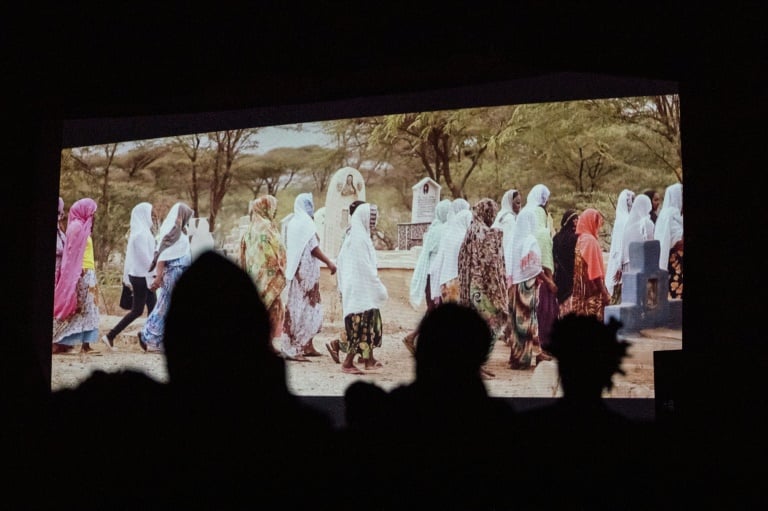PODCAST: Chery Tiggo Cross takes fight to Toyota Corolla Cross
Not that Zekarias, 33, was dead.
But he chose the dramatic entrance to show how close to death he came 12 years ago when he left his home in Ethiopia to journey across the deserts of Sudan and Egypt to try to get to Israel.
“I was almost dead,” Zekarias told AFP, following the Ethiopian premiere of the film last week at the national theatre in the capital Addis Ababa. “At the Israel border, I lost many, many friends, sisters, brothers.”
Zekarias could not have predicted where his journey would finally take him: after being caught and jailed for two years for illegally entering Egypt, the United Nations helped him resettle in Canada.
He has since become a Canadian citizen and settled in Edmonton, Alberta with his wife and two children.
Zekarias says he spent years thinking about making a film about his odyssey.

Six white-gloved pallbearers carried the coffin holding Ethiopian migrant Zekarias Mesfin who said he aimed to show how close to death he came on his perilous journey
Finally deciding to take the plunge three years ago, he ploughed his savings of 2.2 million birr ($81,303, 69,067 euros) into making “Ewir Amora Kelabi”, an Amharic phrase that can be roughly translated as “the higher spiritual power guiding the lost”.
– ‘I was there’ –
Zekarias plays himself in the film, re-enacting his journey across Africa to show viewers just how hazardous it can be.
Illegal immigration is “very difficult, it’s very, very dangerous. I want to teach that,” Zekarias said of the film, which was shot in Ethiopia. “I didn’t make this documentary film by guessing. I was there.”
Ethiopia is Africa’s second most populous country and also one of its poorest.
But despite rapid economic growth over the past decade, many Ethiopians seek to try their luck elsewhere, mostly countries in the Middle East, such as Saudi Arabia and Kuwait, even if they don’t have any visas and have to brave war zones like Yemen to get there.

Zekarias’ movie is called “Ewir Amora Kelabi”, an Amharic phrase that can be roughly translated as “the higher spiritual power guiding the lost”
An estimated 334,000 Ethiopians migrated to the Middle East between 2006 and 2014, according to the Regional Mixed Migration Secretariat, a group of international organisations that monitor migration in East Africa and Yemen.
Tales are rife of the brutality and violence that the migrants face.
In August, the United Nations reported at least 50 migrants from Ethiopia and Somalia were deliberately drowned off Yemen by smugglers who appeared to have spotted a coastguard patrol.
Those who do make it to their destinations and find work provide vital remittances for their families back home, but are also regularly exploited by their employers or physically abused, according to the International Labour Organization.
– A familiar story –
Zekarias’ movie — which he also produced and wrote — won an award for Best Emerging Filmmaker at the African Film Festival in Dallas in July.
It is a story that would be familiar to many Ethiopian migrants.

Zekarias’ movie, in which he played the role of himself and also produced and wrote, won an award for Best Emerging Filmmaker at the African Film Festival in Dallas in July
After being orphaned at a young age, Zekarias roamed Ethiopia working in barber shops until 2005 when he decided to make the trek to Israel, enticed by the better prospects there.
Along the way, he and other migrants were abused and cheated by smugglers and rarely had enough food and water.
He was eventually captured by Egyptian authorities near the Israeli border and thrown into prison.
The film is unflinching in its depictions of the brutality migrants face, but Zekarias said it was up to the viewer to determine whether they want to migrate or not.
“Anyone can decide to go. The decision is up to them,” Zekarias said. “But if they see this movie, I don’t think they want to go.”